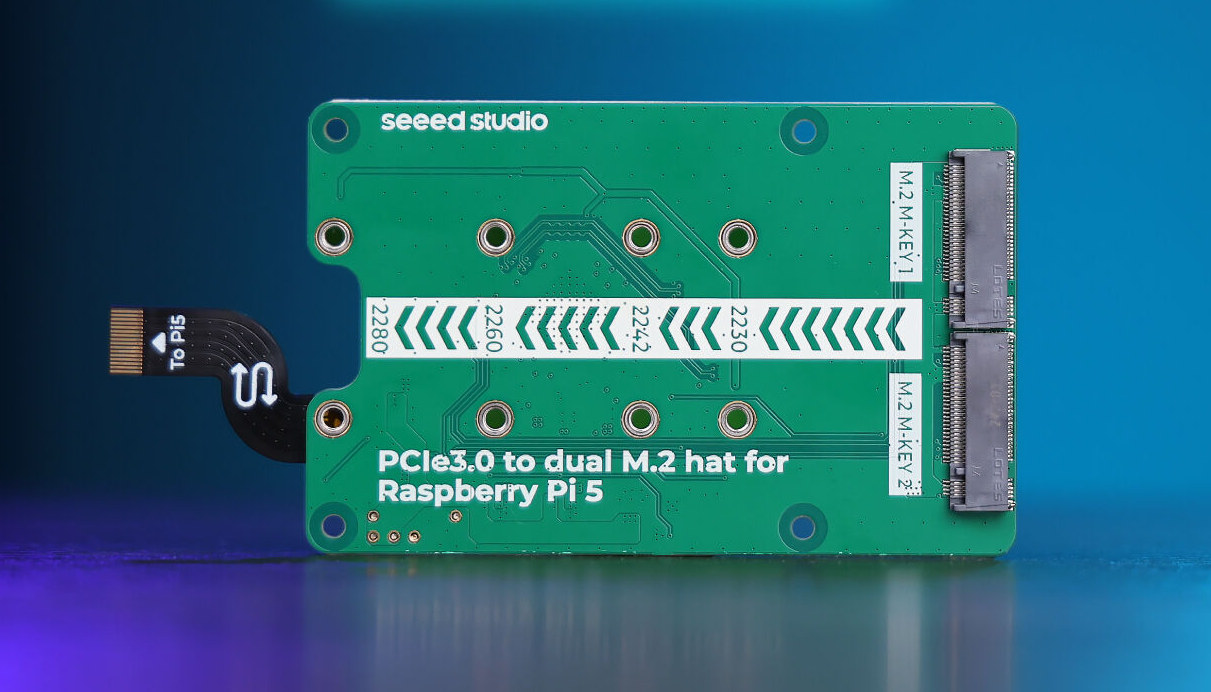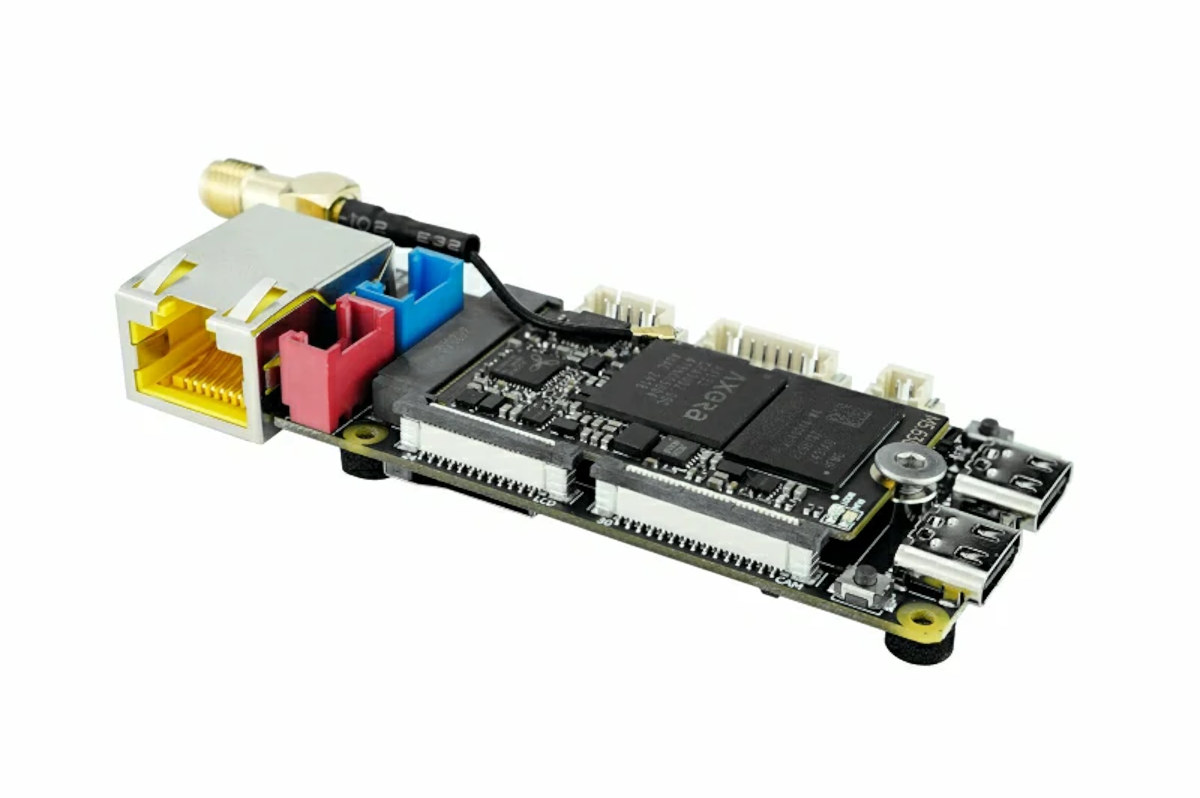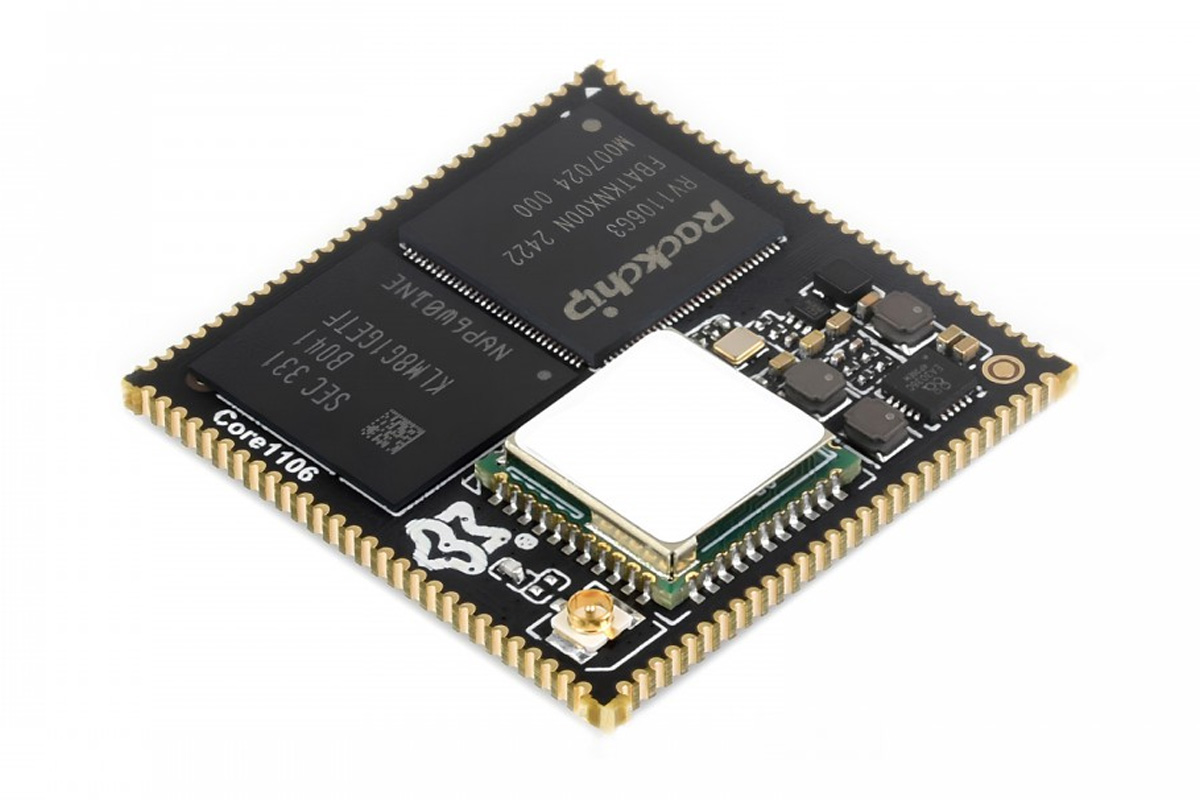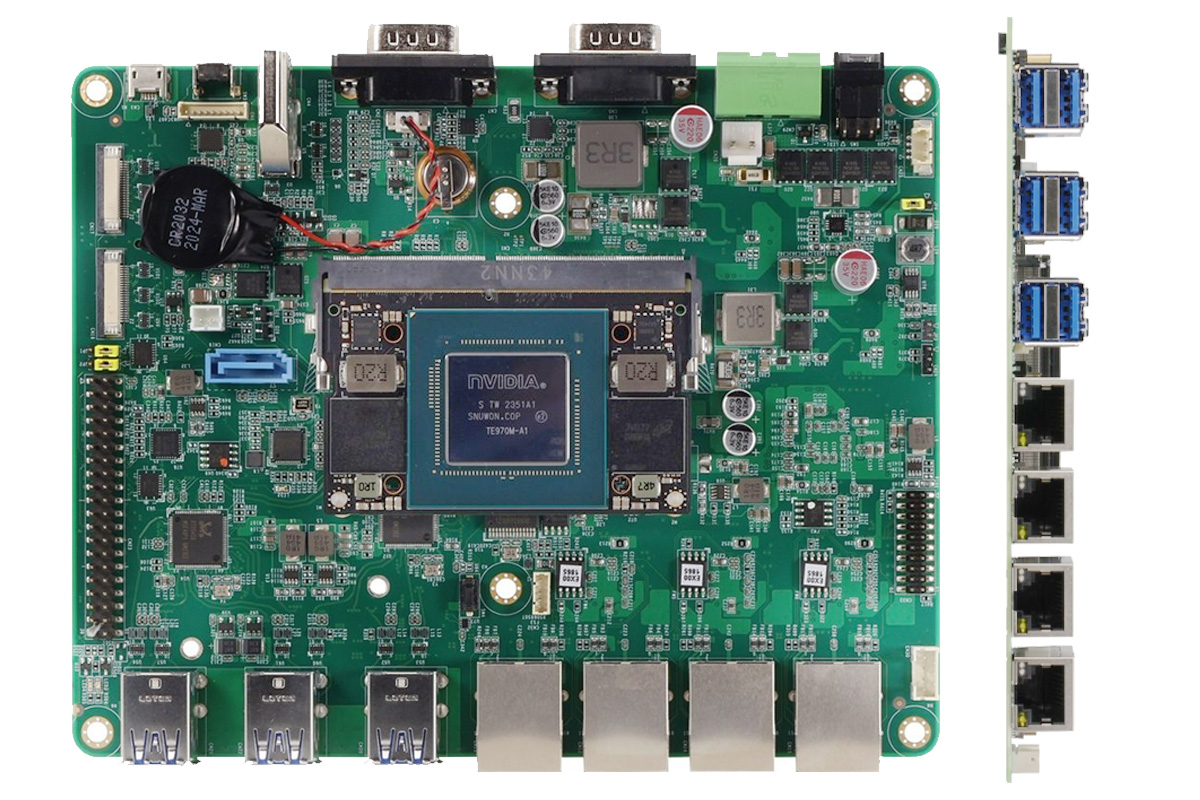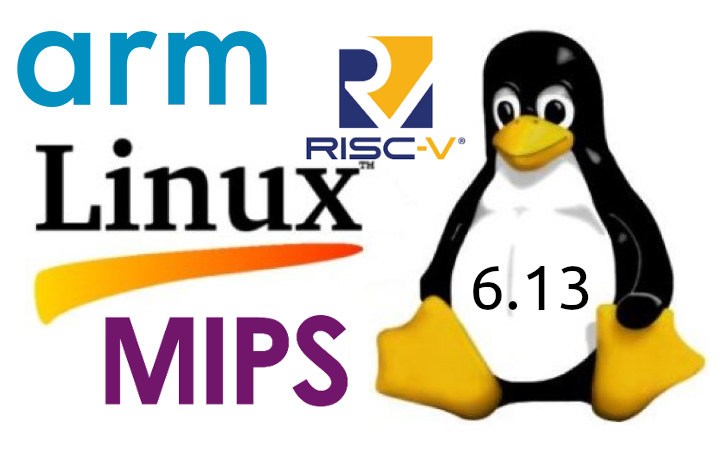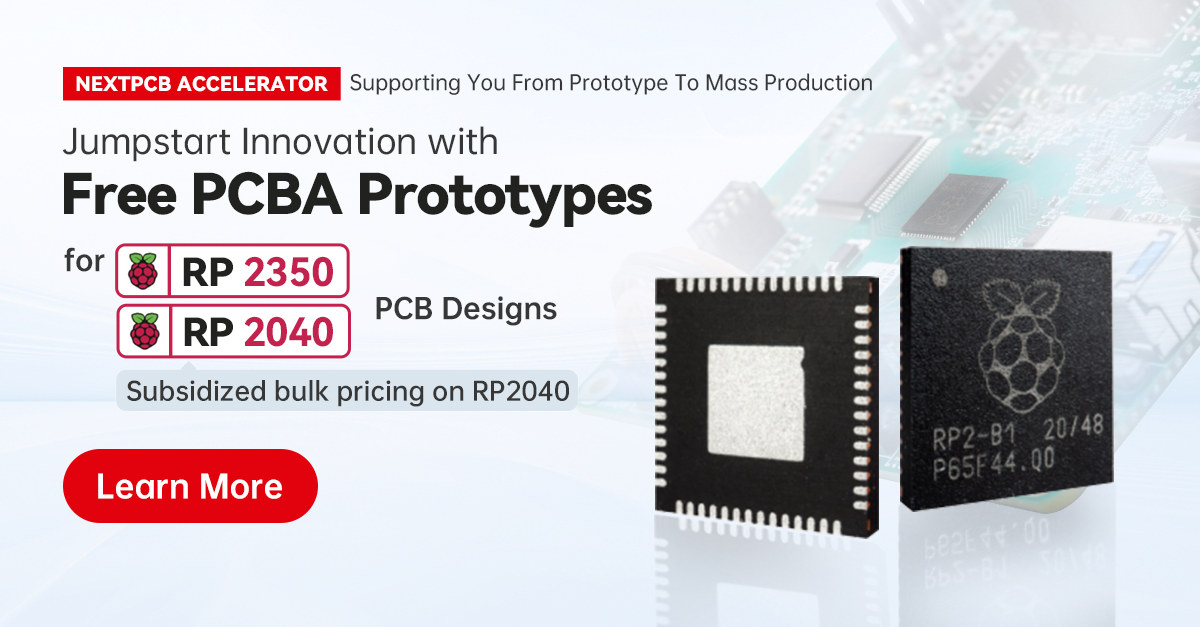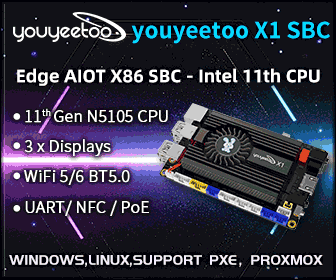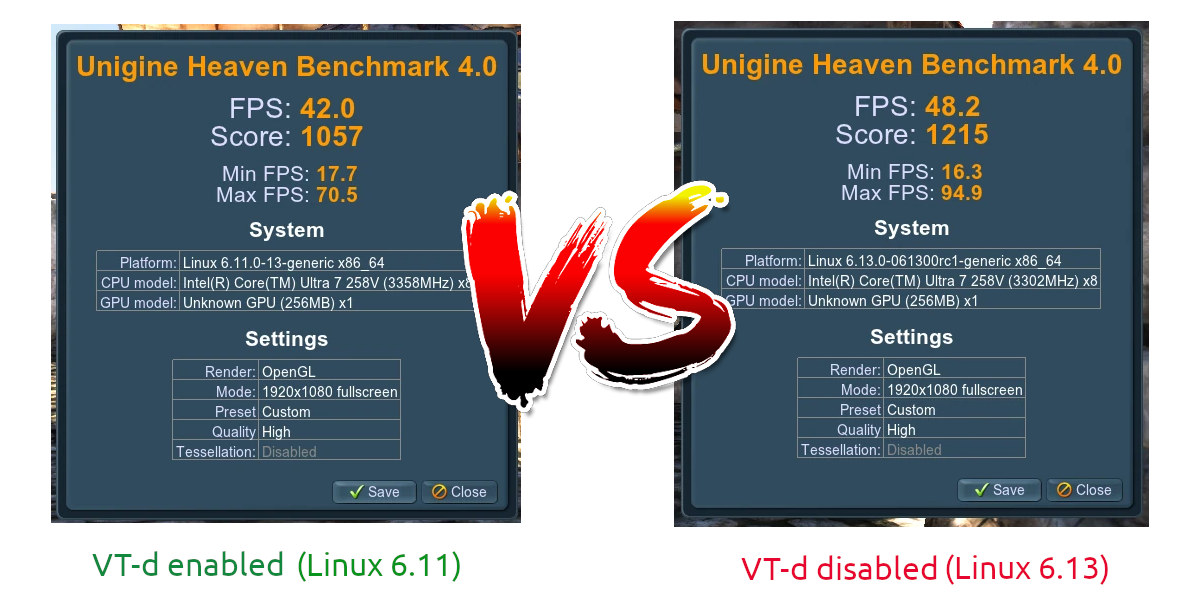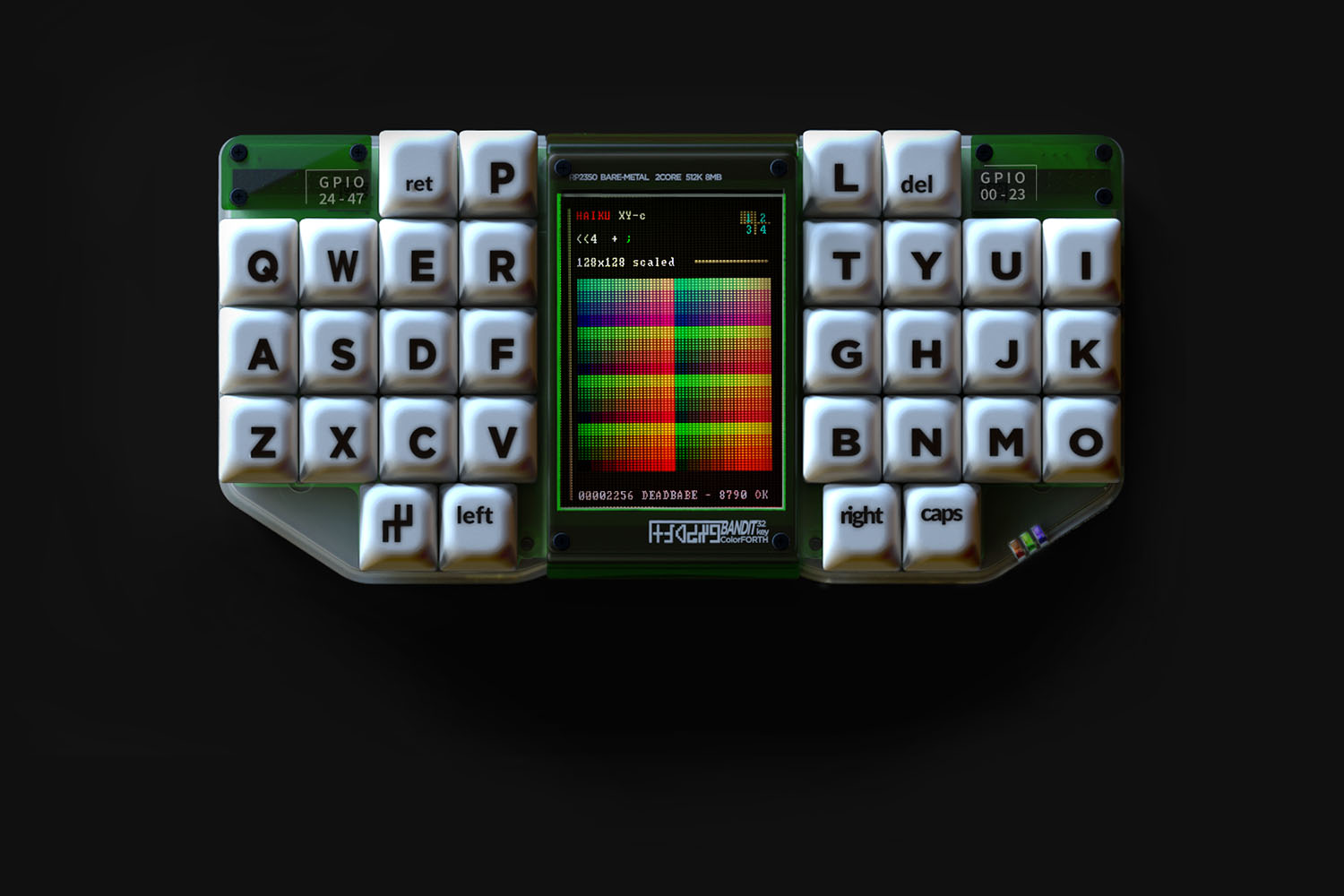We’ve already covered Raspberry Pi HAT+ boards with multiple M.2 sockets with various keyings including the Geekworm X1004 HAT+, Pineboards HatDrive! AI, and HatDrive! Dual with two sockets, and the Geekworm X1011 with four M.2 Key-M sockets. So when I saw Seeed Studio introduced a dual M.2 HAT+ board I initially thought it was uninteresting being a very similar board. However, all aforementioned PCIe to M.2 HAT+ boards are based on either the ASMedia ASM1182e or ASM1184e PCIe Gen2 x1 packet switches with 5GT/s shared bandwidth, and Seeed Studio’s PCIe3.0 to Dual M.2 HAT+ for Raspberry Pi 5 features instead an ASMedia ASM2806 PCIe 3.0 switch supporting up to 8GT/s shared bandwidth through the Raspberry Pi 5’s PCIe Gen3 x1 interface. Seeed Studio PCIe 3.0 to Dual M.2 HAT+ key features and specifications: Supported SBC – Raspberry Pi 5 and potentially other SBCs with a PCIe FFC connector like the […]
M5Stack LLM630 Compute Kit features Axera AX630C Edge AI SoC for on-device LLM and computer vision processing
M5Stack LLM630 Compute Kit is an Edge AI development platform powered by Axera Tech AX630C AI SoC with a 3.2 TOPS NPU designed to run computer vision (CV) and large language model (LLM) tasks at the edge, in other words, on the device itself without access to the cloud. The LLM630 Compute Kit is also equipped with 4GB LPDDR4 and 32GB eMMC flash and supports both wired and wireless connectivity thanks to a JL2101-N040C Gigabit Ethernet chip and an ESP32-C6 module for 2.4GHz WiFi 6 connectivity. You can also connect a display and a camera through MIPI DSI and CSI connectors. M5Stack LLM630 Compute Kit specifications: SoC – Axera Tech (Aixin in China) AX630C CPU – Dual-core Arm Cortex-A53 @ 1.2 GHz; 32KB I-Cache, 32KB D-Cache, 256KB L2 Cache NPU – 12.8 TOPS @ INT4 (max), 3.2 TOPS @ INT8 ISP – 4K @ 30fps Video – Encoding: 4K; Decoding:1080p […]
Solderable Rockchip RV1106 system-on-module features 112 castellated pins, offers WiFi 6 and Bluetooth 5.2 connectivity
Luckfox has recently released the Core1106 Core Board Rockchip RV1106 system-on-module with a compact 30x30mm size, 112 castellated pins designed to be soldered on top of a PCB, and an optional WiFi 6 and Bluetooth 5.2 module and IPEX 1.0 antenna connector. The Rockchip RV1106 camera SoC integrates 128MB (G2 version) or 256MB (G3 version) DDR3L memory, a 4th-gen 1 TOPS NPU, and a 3rd-gen Image Signal Processor (ISP) that supports hardware video encoding (H.264/H.265). Other interfaces include MIPI CSI, RGB LCD, USB, Ethernet, GPIO, SPI, I2C, UART, and more. These features make this board suitable for applications like AI-driven image recognition, smart cameras, IoT devices, and edge computing. Luckfox RV1106 system-on-module specifications SoC – Rockchip RV1106G2/G3 CPU – Arm Cortex A7 @ 1.2GHz with an integrated RISC-V co-processor. NPU 4th-gen Rockchip NPU with hybrid quantization (int4, int8, int16) 0.5 TOPS (RV1106G2) or 1 TOPS (RV1106G3) ISP – 3rd-gen 5MP high-performance ISP, HDR, WDR, […]
AAEON BOXER-8654AI-KIT – NVIDIA Jetson Orin NX-based Edge AI kit features four gigabit Ethernet ports with PoE support
The AAEON BOXER-8654AI-KIT Edge AI kit is a compact development kit built around the NVIDIA Jetson Orin NX modules with four gigabit Ethernet ports (with optional PoE) and an Out-of-Band (OOB) management header, and designed for applications like smart cities, IoT ecosystems, edge AI, and others. The multi-functional carrier board also offers six USB 3.2 Gen 2 ports, HDMI video output, two MIPI CSI, two DB-9 ports for RS-232/422/485 and CAN Bus, and a 40-pin NVIDIA Jetson-compatible GPIO header for I2C, SPI, and UART interfaces. Expansion options include M.2 E and B-key slots for Wi-Fi and 5G modules (with onboard SIM), an M.2 M-Key slot for NVMe SSDs, and a SATA connector. AAEON BOXER-8654AI-KIT specifications SoM – NVIDIA Jetson Orin NX module CPU 8GB Version – 6-core Arm Cortex-A78AE v8.2 64-bit CPU, 1.5MB L2 cache + 4MB L3 cache 16GB Version – 8-core Arm Cortex-A78AE v8.2 64-bit CPU, 2MB L2 […]
Linux 6.13 Release – Main changes, Arm, RISC-V, and MIPS architectures
Linus Torvalds has just announced the release of Linux 6.13 on the Linux Kernel Mailing List: So nothing horrible or unexpected happened last week, so I’ve tagged and pushed out the final 6.13 release. It’s mostly some final driver fixes (gpu and networking dominating – normal), with some doc updates too. And various little stuff all over. The shortlog is appended for people who want to see the details (and, as always, it’s just the shortlog for the last week, the full 6.13 log is obviously much too big). With this, the merge window for 6.14 will obviously open tomorrow. I already have two dozen pull requests pending – thank you, you know who you are. Linus Release about two months ago, Linux 6.12 – the new LTS version – brought us real-time “PREEMPT_RT” support that had always required out-of-tree patchsets until now, the completion of the EEVDF (Earliest Eligible […]
NextPCB offers free PCBA prototypes for RP2350/RP2040 designs, RP2040 MCU as low as 30 cents (Sponsored)
NextPCB Accelerator is an initiative from the PCB and PCBA manufacturer to empower innovators and creators to bring their ideas to life, and the ongoing campaign features the Raspberry Pi RP2350 and RP2040 microcontrollers. Specifically, NextPCB offers two free PCBA prototypes for any original design based on either the RP2350 Cortex-M33/RISC-V microcontroller or RP2040 Arm Cortex-M0+ MCU from Raspberry Pi. The company also offers subsidized bulk pricing for the Raspberry Pi RP2040 for any company or maker mass-producing their design with NextPCB. Besides PCB manufacturing, NextPCB will offer professional assembly of the RP2040 or RP2350 chips using their precision pick-and-place machines, advanced automated inspection equipment, and carefully controlled manufacturing practices. NextPCB’s IC programming and firmware burning services will free up time for customers, and functional testing services will make sure all prototypes are tested for functionality before leaving the production line. The conditions of the offer are pretty straightforward. NextPCB […]
Disabling VT-d improves Intel Arc GPU Linux performance on Meteor Lake and newer SoCs
In this post, I’ll check whether disabling VT-d virtualization support may improve the performance of the Intel Arc GPU in recent Meteor Lake or Lunar Lake SoC using a Khadas Mind Maker Kit with an Intel Core Ultra 7 258V CPU with Intel Arc 140V graphics running Ubuntu 24.10. A few days ago, I read a post on Phoronix about Intel publishing tips to improve the performance of Intel GPUs in Linux: Keep the system updated with the latest kernel and Mesa versions. Ensure SoC firmware is up-to-date. These firmware updates currently require installing the Windows graphics driver; firmware updates via fwupd are in progress. Use Wayland where possible, as it supports additional modifiers for better performance. For MTL (Meteor Lake) and newer integrated GPUs, disable VT-d if virtualization is not needed. For discrete GPUs: Enable ReBAR_ Enable ASPM_ I was especially curious about the line about disabling VT-d virtualization […]
BANDIT PC32 standalone ColorForth keyboard computer is powered by the Raspberry Pi RP2350 microcontroller
BANDIT PC32 is a Raspberry Pi RP2350-powered keyboard computer that runs a graphically-oriented version of the ColorForth programming environment. The BANDIT PC32 is primarily aimed at on-the-go use for programming video games. The custom, 32-key split keyboard takes up most of the build, with a 3.2-inch 320 x 240 capacitive display in the center. It also features an HDMI port for connecting a larger external display. The 48-pin GPIO is divided into two female headers and can be used to interface with other devices directly. This is the second version of the Bandit standalone computer, building on an early prototype based on the RP2040 microcontroller. We have seen several interesting RP2350-based products like the Inky Frame 7.3”, 4D Systems display modules, and Jumperless V5 programmable breadboard. However, this is the first RP2350 standalone computer we have come across. It shares some similarities with the ESP32 Rainbow. BANDIT PC32 ColorForth specifications: […]


